Sexual harassment: Could the 'bystander effect' be the answer?
- Published

Sharon wants more clarity about how victims would prove malicious intent
Would you report sexual harassment? Or step in to stop it? If you wouldn't, that's something the government wants to change. But some say it's not going far enough.
"When I go to schools, when I speak to young women, I want the story to be different," says Sharon Gaffka.
"But the story never is."
Since leaving the Love Island villa, the 26-year-old has become a campaigner against violence towards women and girls and regularly works with teenagers.
But Sharon says she hasn't seen much change since she was a schoolgirl - and official statistics appear to support her opinion.
Females under 34 are most likely to be the target of sexual offences but the least likely to report them.
That's according to the Crown Prosecution Service (CPS), which is in charge of criminal cases in England and Wales.
It also says 98% of incidents involving young women go unreported - often because victims fear the offences aren't serious enough.
Grey area?
The CPS recently updated its advice to staff about street harassment such as catcalling.
Its new guidelines also cover offences like exposure, stalking and sexual assault.
They aren't new laws, but advice on how existing ones can be applied to newer offences such as cyberflashing.
Siobhan Blake, who's the lead on rape and sexual offences at the CPS, says she's keen for more women to feel confident enough to come forward.
"We want to send a clear message that intimidating behaviour can be a criminal offence," Siobhan says.
But not everything is going to be a crime, she adds, and some interactions "should be called out as just inappropriate behaviour".
For more serious offences to be prosecuted, Siobhan says, a victim would need to prove they had been negatively affected.
The CPS says it's also clarified its guidance around less serious, one-off offences considered "likely" to cause harassment, alarm, or distress.
But Sharon Gaffka says this creates a grey area and needs to be clarified for the public if prosecutors want more people to report abuse.
She says she has been a victim of cyberflashing - sending unwanted sexual images to strangers in public places - "at an alarming level".

The CPS has published guidance on prosecuting cyberflashing
"The one thing that hurts me most about it is not that I'm subjected to seeing these images without consent, it's the fact that I am powerless to do anything about it," Sharon says.
"Will I have to prove that there's malicious intent in sending this content?"
Newsbeat put some of Sharon's concerns to the CPS, which insisted extra clarity for lawyers should give victims confidence to report potential offences.
But if more prosecutions do come, they might take a while to reach court.
Courts in England and Wales are dealing with a backlog in the wake of coronavirus lockdowns and a strike by barristers that delayed hundreds of cases.
So the government's launched another campaign designed to tackle attacks on women.
Is Enough enough?
This other approach to tackling sexual harassment is to attempt to prevent it from happening in the first place.
The Home Office - the government department in charge of policing - recently launched a campaign encouraging people to call out harassment.
It's called Enough and you might have seen posters for it popping up on public transport over the past month or so.
The adverts - mainly aimed at men - suggest ways for people to intervene if they see someone being harassed.
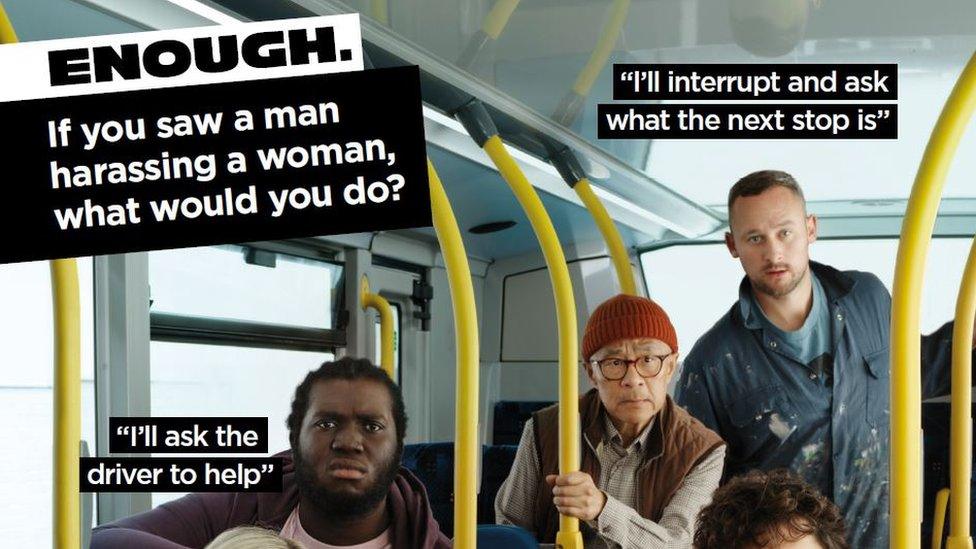
The government recently launched its Enough campaign about street harassment
Zan Moon became a campaigner for women's rights after being harassed on the London Underground in January.
She runs an Instagram account called Screengrab Them which exposes online harassment.
She thinks the campaign will see an increase in reporting and help women feel safer in the real world.
"I do think it is getting the right message out, which is bystander intervention," the 26-year-old says.
"The people that will have the most effect will be men that can change their mates' views or men that can intervene and set an example."
The bystander effect
Anthea Sully heads up White Ribbon, an organisation which works with men and boys to stop violence against women and girls.
She was consulted by the Home Office about the Enough campaign.
"People need to understand that street harassment is really serious," says Anthea. "It curtails the lives that women want to lead."
As well as direct intervention - making clear to a perpetrator their behaviour is unacceptable - the campaign also suggests distraction techniques that are less confrontational.
"It is really important to think about your own safety," says Anthea.
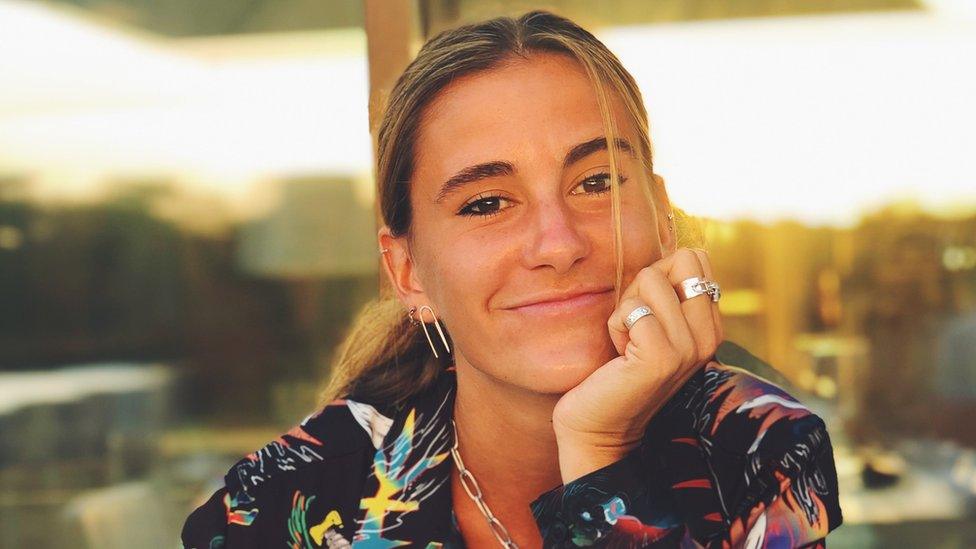
Zan Moon was subjected to a torrent of sexist and homophobic abuse on the Tube
"You may be able to directly intervene by stepping in but there does need be some judgments to make sure that's safe."
Asking the time to defuse a situation or alerting a bus driver are examples of indirect interventions.
Anthea also recommends checking in later with victims if you witness harassment and challenging intimidating behaviour among your friends.
"I'm a massive believer in the bystander effect," Sharon says.
"A lot of the time, especially with catcalling, lads will believe that that behaviour is completely acceptable, because we are accepting that behaviour by not calling out."
Anthea and campaigner Zan would also encourage victims to report anything that makes them feel uncomfortable.
"It's always worth reporting," Zan says.
"It goes a long way in terms of finding dangerous areas that the police can target to survey or potential repeat offenders."
Changing attitudes
The campaigns and guidelines come after years of falling rape prosecutions and record-breaking reports of sexual assaults in the UK.
High-profile cases including the abduction, rape and murder of Sarah Everard by a serving police officer have also undermined confidence in authorities.
Siobhan says the CPS is working closely with police to improve this and insists "significant progress" is already being made.
As for Enough, Zan says "the posters are great at trying to increase bystander intervention and reporting".
"But there's real practical changes which need to be made."
"I just don't know whether their actions are practical enough and focusing on the real systemic changes that need to be made."
Anthea says as much as targeting street harassment is essential, more needs to be done to address attitudes towards women and girls at a much earlier stage.
"We need to be working with really very young children and challenging gender norms and the way expectations are different for boys and girls as as they're growing up," she says.
"Making sure that we have equality will improve safety for women."


Follow Newsbeat on Twitter, external and YouTube, external.
Listen to Newsbeat live at 12:45 and 17:45 weekdays - or listen back here.
- Published21 September 2022
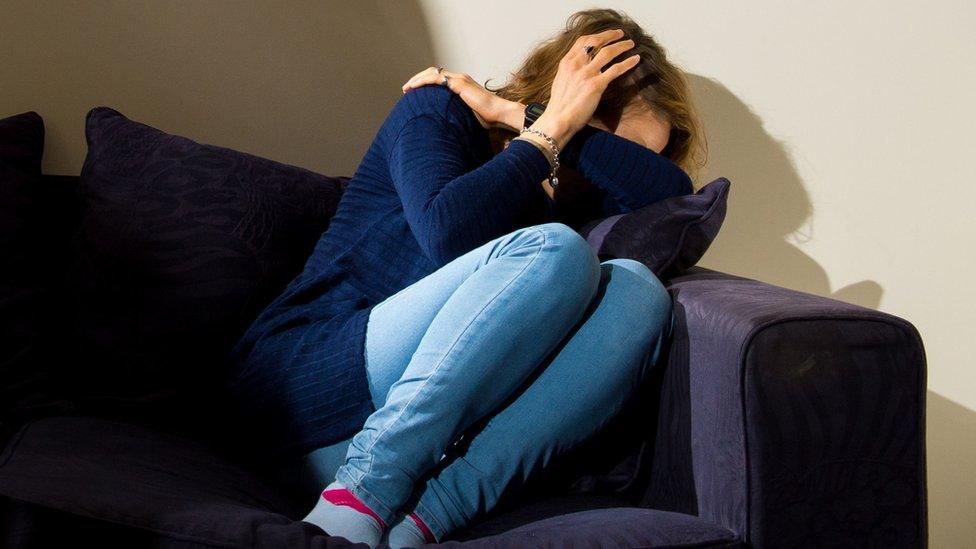
- Published30 June 2022
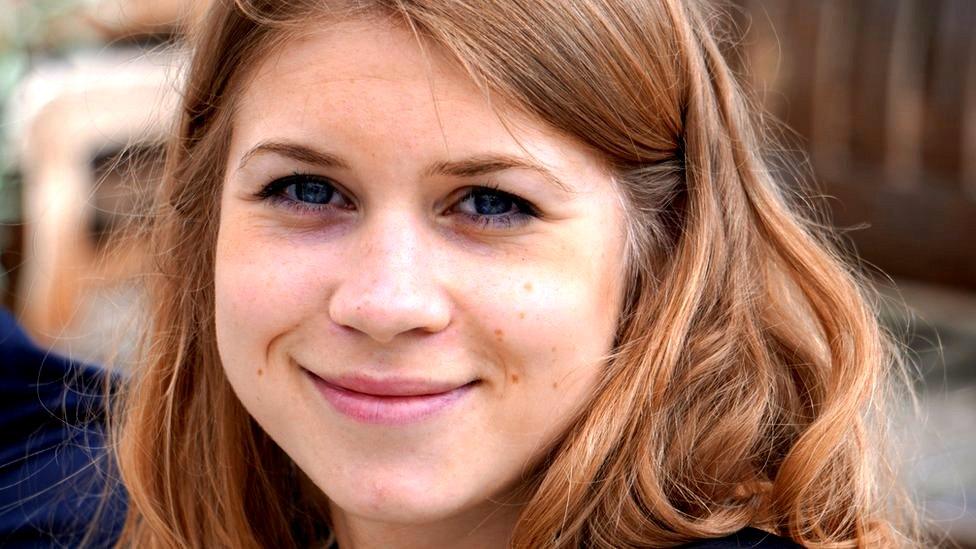
- Published17 March 2022
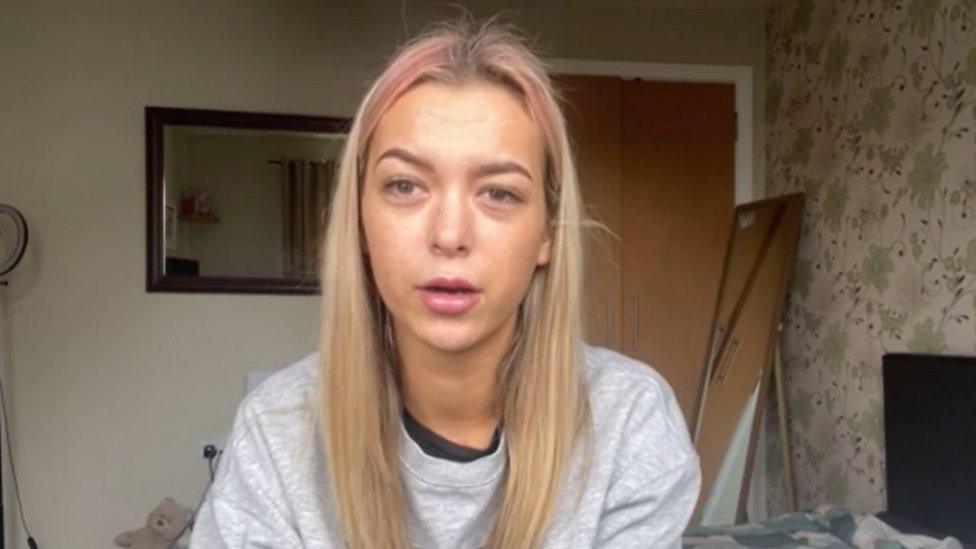
- Published19 August 2022

- Published8 August 2022
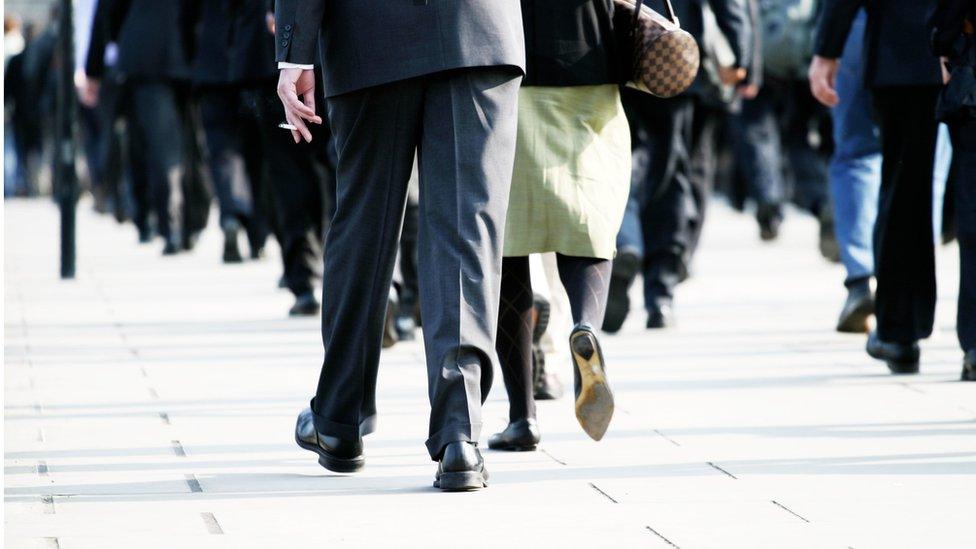
- Published27 May 2022
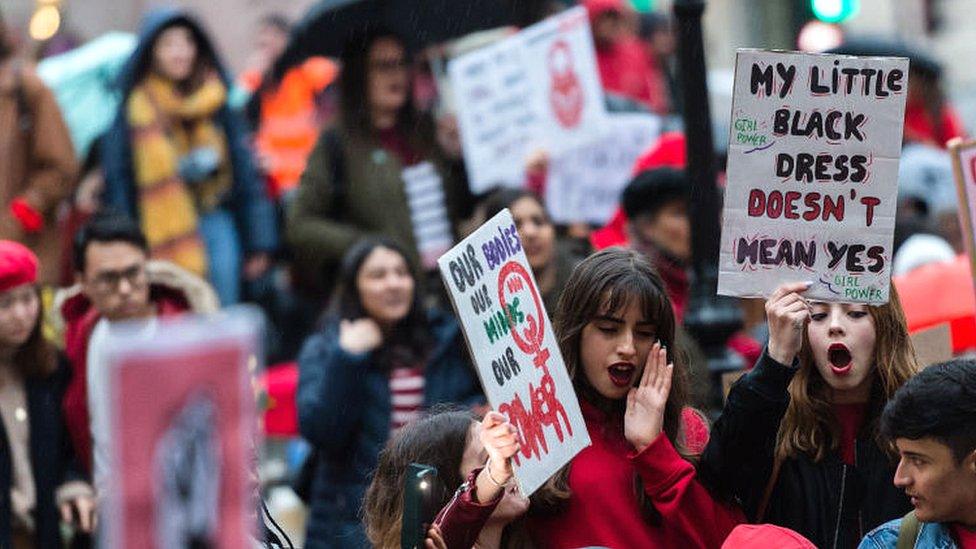
- Published8 March 2022
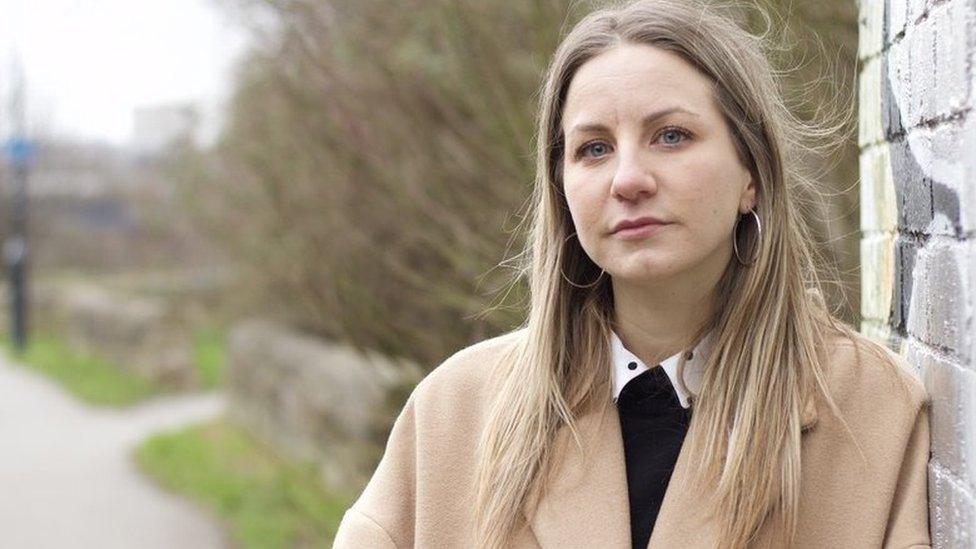
- Published3 March 2022
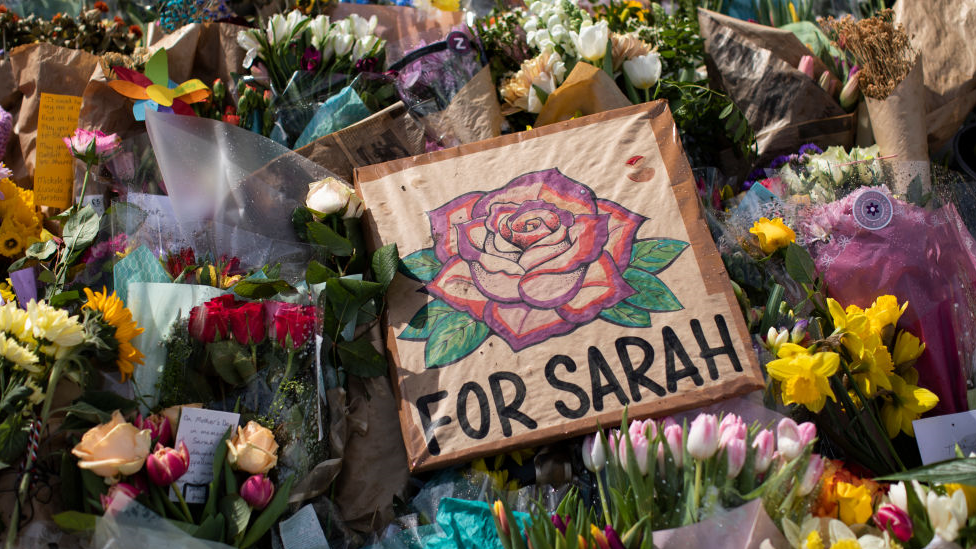
- Published12 March 2021
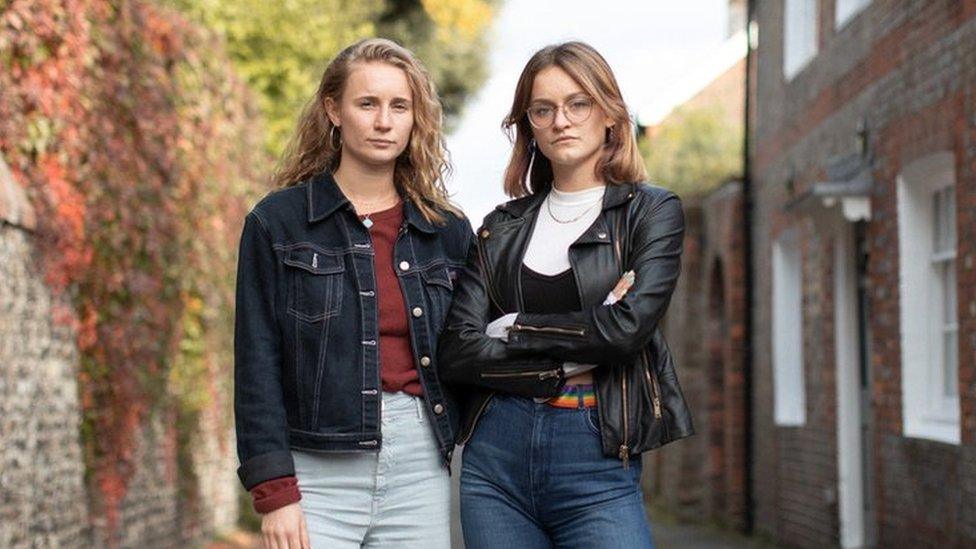
- Published12 April 2019
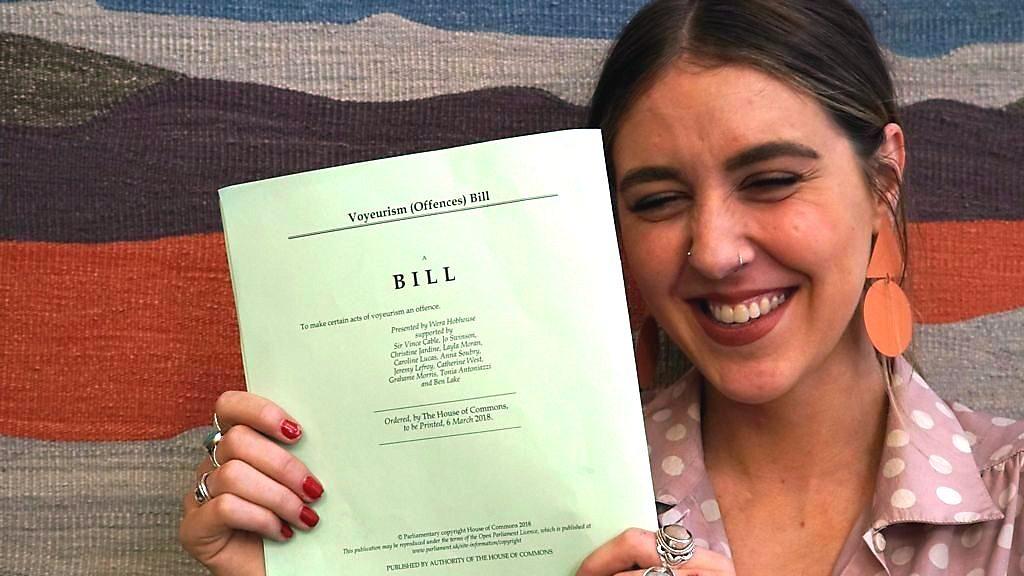
- Published9 July 2018

- Published6 March 2018